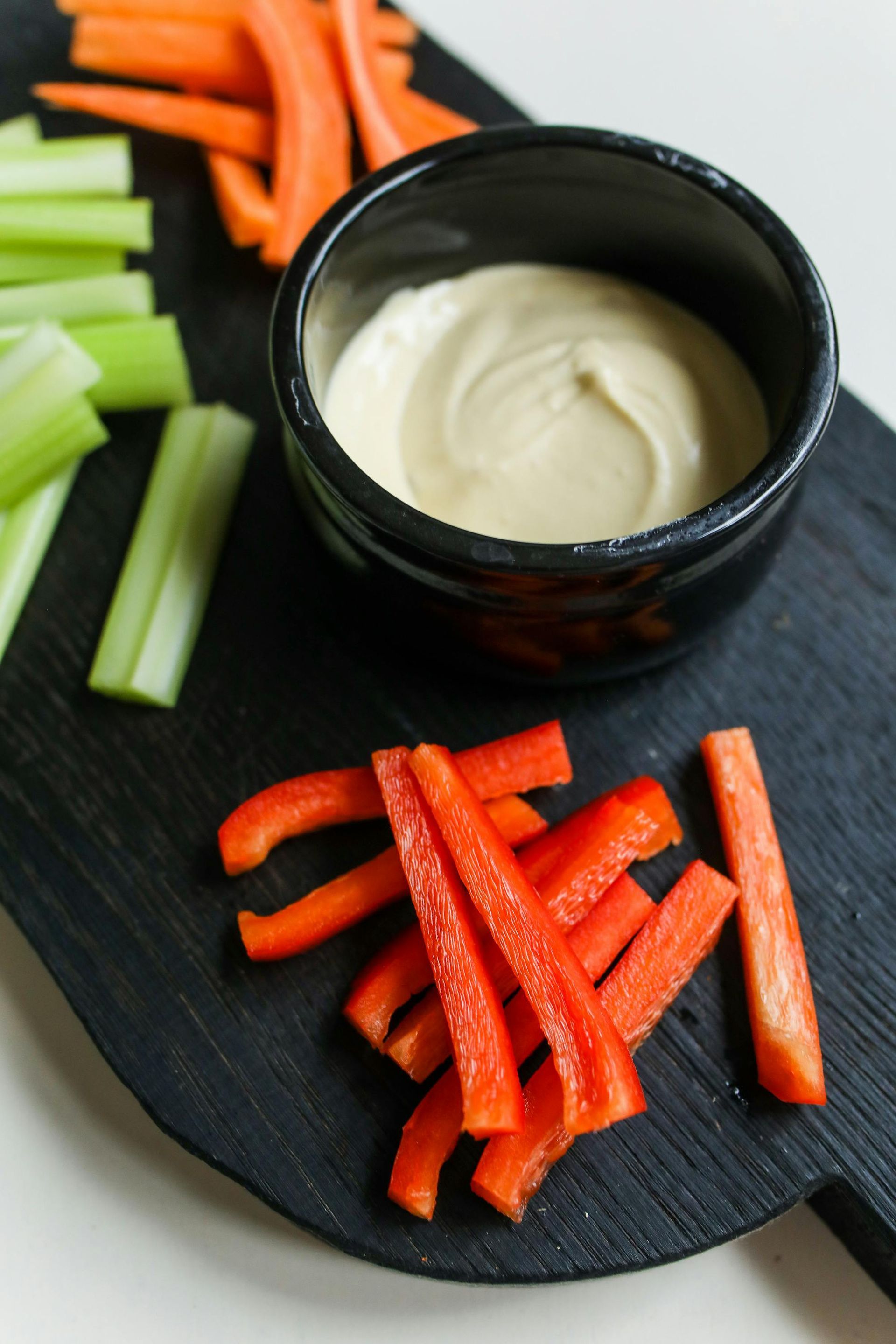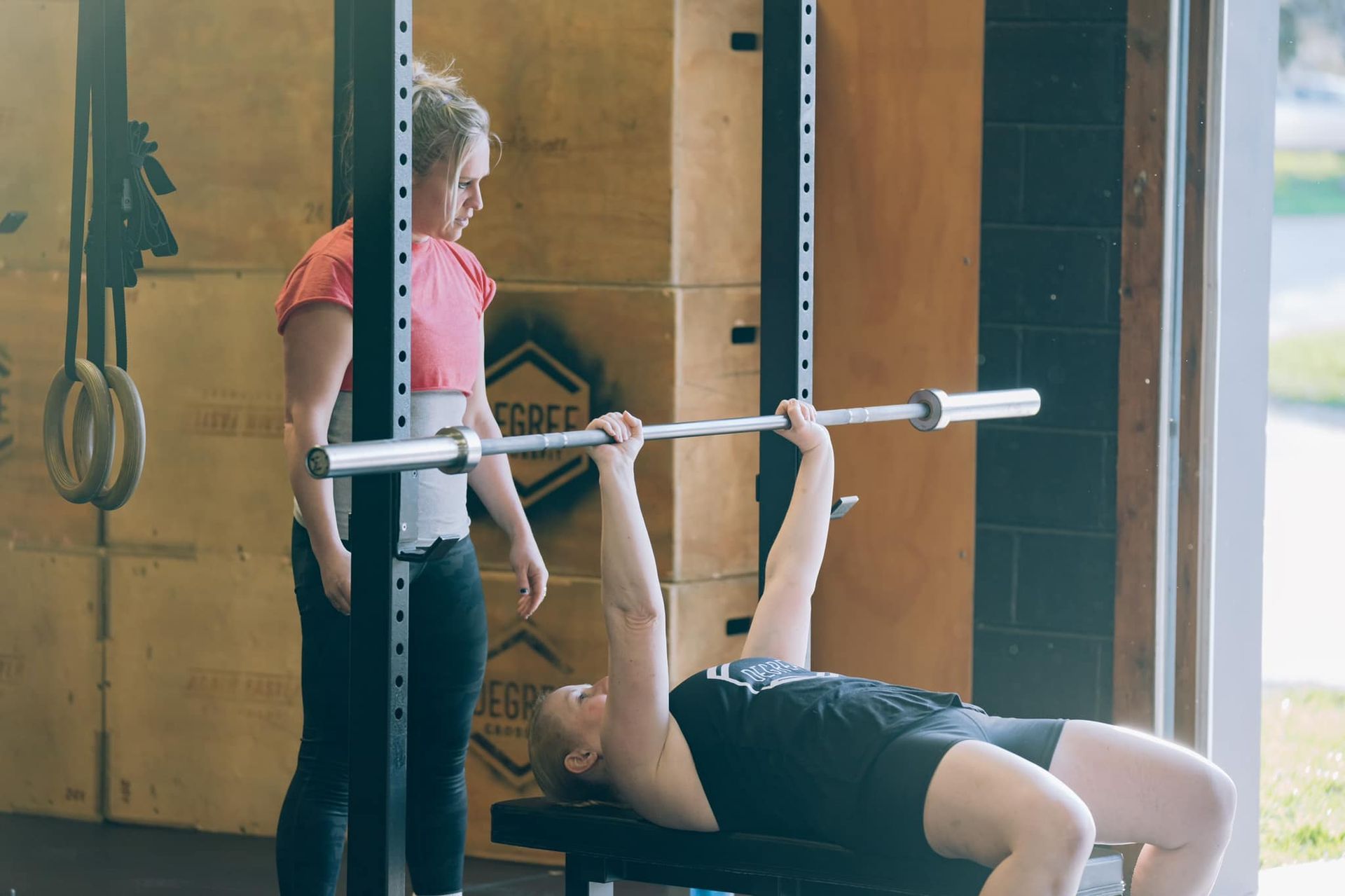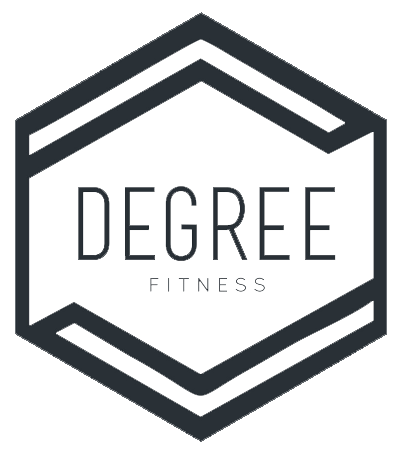How Under-Eating Leads to Over-Eating
July 11, 2021
Written By: Registered Dietitian Mairead It's something I see with clients all the time. We want to eat less so we can lose weight - that makes sense. Maybe we eat like a bird all day, only to find ourselves eating a huge evening snack. Maybe we eat small balanced meals Monday to Friday, and then feel out of control with food on the weekends. Maybe we even follow our eating goals perfectly most of the time, but know we'll over-indulge to the point of feeling way too full and guilty as soon as we have access to our favourite treat. Any of those sound familiar?
When we're experiencing these, it often feels like we're the only one with no willpower, or like we're totally out of control.
Here's a secret: any of those scenarios are way more common than you'd think.
Here's another secret: the problem isn't your willpower and determination to only eat a certain way. Our bodies are smart and they want to keep us alive. They need energy from food to do that. When we under-eat, either briefly for a day, or for longer periods of time, our body will send cues to make us more likely to eat more when we have the chance.
Similarly, this can happen if we restrict certain types of food, not just food overall. If you never let yourself eat chocolate, and then have access to it all of a sudden, it's no wonder you feel out of control!
So how do we move past this? For most people, this might look like making our overall food intake more even, both throughout the day and the week.
We'd make sure we're eating amounts closer to our needs, instead of aiming for a giant (but unsustainable) calorie deficit. Maybe we start including those favourite treat foods more often and break down some of the food rules we've set for ourselves.
Eating more and learning to trust your body can be a scary process - especially if you're trying to do it alone! Working with a dietitian gives you the support you need to still pursue your health and fitness goals in a sustainable way, while working to build a positive relationship with food. Try booking a Nutrition Consultation to get started, or signing up for On-Going Nutrition Coaching for that one-on-one support to make big changes!
We're not currently taking on any new nutrition clients, but you can email mairead@degreefitnessseaforth.com
to get on the waitlist for when spots open up this fall!

Written By: Mairead, Registered Dietitian Snacking causes a lot of worry for many people! Is snacking bad? When should we be snacking? What's the best snack? Snacking itself isn't a bad habit, unless it's not aligned with your health and fitness goals. Snacks can actually do a lot of good to keep our energy levels up throughout the day and help meet our nutrition needs. Let's check out four ways you can improve your snacking habits! 1. Think about why! If you're concerned about whether your snacks are a problem, it's worth thinking about why you're snacking. Are you hungry between meals? Do you need some fuel before or after a workout? Are you bored at work in the afternoon or need a pick-me-up? Do you need something to do with your hands while watching tv? Are you starving at the end of the day when you get home before you have a chance to make dinner? Snacks serve lots of purposes, from keeping our energy stable during the day, to meeting emotional needs. If you don't feel good about why you're snacking, it might be time to find some other way to meet that need. 2. Plan for your snacks! Often, we may know we need a snack, but not be able to make a healthy choice about it because we're too busy or just too hungry. A little planning goes a long way! Planning ahead for these times can help us make choices that align with our goals, and have something at the ready before we're too hungry to make that healthy choice. Pack a snack or have one at the ready during the times of day or situations when you know you'll need it. 3. Make them satisfying! If a snack isn't satisfying, we'll be reaching for something else soon. For longer lasting energy, choose snacks that have a combination of protein and carbs. This might include yogurt with berries, a higher protein granola bar, crackers and veggies with hummus, or even a couple handfuls of trail mix. If you find yourself finishing your snack without even noticing what you've eaten, try taking a minute to eat more mindfully and focus on your food. This will help you feel more satisfied with it! 4. Fill your nutrition gaps! Snacks are another opportunity to add nutrition to your day. Are there specific foods you're trying to add more of to your diet? Are there nutrients you feel you may be lacking? Use snacks as a way to add these in. If you're concerned about protein, try adding canned tuna, hardboiled eggs, or Greek yogurt to your snacks. If you feel you're lacking vegetables or fruit, include at least one in your snack. If you're trying to include more plant-based proteins, lean on bean-based dips or try roasted chickpeas. The options are endless! Remember, snacking isn't good or bad, and can serve a lot of different purposes. Try using these tips to help your snacking align better with your health and fitness goals! Looking for more personalized nutrition advice? Let's chat! Email mairead@degreefitnessseaforth.com for more information about our Nutrition Programs, or click HERE to book your FREE Bite-Sized Nutrition Chat!

Written By: Mairead, Registered Dietitian As a Dietitian, I work with a lot of different people. One common thread is that we talk about excuses. So many people come in to a nutrition consultation and tell me about their challenges with nutrition and fitness, and then follow it up by saying something along the lines of "I know these are just excuses, I can do better". The things we often consider excuses can include having a busy job and a busy family life. Working weird hours. Struggling with the cost of groceries. Caring for loved ones. Managing health concerns, chronic diseases, or injuries. The list goes on. For my nutrition clients, I rarely consider any of these things to be excuses. It's not an excuse that you can't eat well because you work long hours and then take your kids to their sports practices - these are very real reasons why you're struggling to make healthy choices. It's not an excuse if you work nights and need to get some sleep so you didn't make it to the gym - it's as aspect of your life that makes getting enough exercise challenging. Think about the things you might consider to be your excuses for not "doing better" with your health and fitness. Are they really just parts of your life or the season you're currently in? None of these things should be making you feel bad or like you're making excuses. But on the flip side, these reasons also don't mean we need to throw in the towel on our goals entirely. They mean we might need to get a bit creative, decide what's really important to us right now, and ask for help when we need it! Instead of feeling bad about your "excuses" that aren't really excuses, it might be time to find some new ideas. Working with a Dietitian can be a great way to figure out what's actually important in your health and fitness goals, and come up with some new ideas to get you there. There are always steps we can take in the right direction to move past those "excuses" and work together for a happier and healthier you! Looking for more personalized nutrition advice? Let's chat! Email mairead@degreefitnessseaforth.com for more information about our Nutrition Programs, or click HERE to book your FREE Bite-Sized Nutrition Chat!

Written By: Coach Kelly Have you heard... "You’re too old, you’re too tired, you’re too X Y Z" to workout? WRONG! Did you know that the more you move, the less likely you are to experience injuries? The less likely you are to trip, slip or fall. If these things happen, you are less likely to be severely injured. We’ve worked with many different people over the almost 10 years that Degree has been around; hip replacements, knee replacements, strokes, members that experienced an injury outside of the gym but still came to class, etc. We often put ourselves in a box that “I can’t because…”. But, is that true? What if you just tried? Moving keeps us healthy and independent; movement also promotes recovery when done appropriately. So, how do you stick to a fitness routine? Why does it matter? And believe me, it really, really does matter. Keep it simple. I saw the most changes in my fitness/health when I ate well and exercised regularly. I didn't starve myself, I didn’t do any low fat things, I didn’t have to take any extra supplements. I just ate well, trusted the process and moved my body. Now, keep in mind things are different for me than they were 3 years ago; I have a 14 month old and a 3 year old at home. Am I tired? Yep! Do I always get a full nights sleep? Nope, never. Do I have more stress now than then? 100%. However, my why stays true. I want to grow old with power and strength. I want to keep up with my boys and beat them in races as long as I can. I don’t want to be at the Doctors office all the time (even though our local Docs are amazing!). I don’t want to be at the mercy of someone else for my own health. You have the amazing opportunity to keep moving. You have friends, family, jobs, groups and an entire world that wants you to feel good. To feel happy, healthy, strong, and not question if you can go for the bike ride, or be scared to take the stairs. The next best thing you can do if you’re stuck? Ask for help. When our cars break down we take them to the mechanic. When we need a teeth cleaning we go to the Dentist. When we have a tax question we go to the accountant. The world is saturated with health and fitness fads - most of which isn't always the best. Ask for help - Talk to a Coach that can help you leaf through what Google is telling you to find out what will actually work for you, and help you create a habit that works. Ready to get started? Email info@degreefitnessseaforth.com or call/text 519-441-7492!
